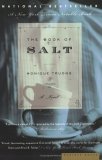Summary | Excerpt | Reading Guide | Reviews | Readalikes | Genres & Themes | Author Bio

Critics' Opinion:
Readers' Opinion:
First Published:
Apr 2002, 272 pages
Paperback:
Jun 2004, 272 pages
I was somewhat superstitious. I thought that fate must have also been listening in on this reverie about travel and flight. How could I not when the letter arrived at the rue de Fleurus later on that same day? It was quite an event. My Mesdames handed me the envelope on a small silver tray. They said that they had been startled to realize that they had never seen my full name in writing before. What probably startled them more was the realization that during my years in their employment I had never received a piece of correspondence until this one. I did not have to look at the envelope to know. It was from my oldest brother. No one else back there would have known where to find me, that 27 rue de Fleurus was my home. I sniffed the envelope before opening it. It smelled of a faraway city, pungent with anticipation for rain. If my Mesdames had not been in the room, I would have tasted it with my tongue. I was certain to find the familiar sting of salt, but what I needed to know was what kind: kitchen, sweat, tears or the sea. I wanted this paper- shrouded thing to divulge itself to me, to tell me even before the words emerged why it had taken my brother almost five years to respond to my first and only letter home.
I had written to him at the end of 1929. I was drunk, sitting alone in a crowded café. That December was a terrible month to be in Paris. All my favorite establishments were either overly crowded or pathetically empty. People either sipped fine vintages in celebration or gulped intoxicants of who cares what kind, drowning themselves in a lack of moderation, raising a glass to lower inhibitions, imbibing spirits to raise their own. The expressions abounded, but that December the talk everywhere was the same: "The Americans are going home." Better yet, those who had not were no longer so cocky, so overweening with pride. Money, everyone was saying, is required to keep such things alive. It was true, the Americans were going home, and that, depending on who you were, was a cause to rejoice or a cause to mourn.
The city's le mont-de-piété, for instance, were doing a booming business. "Mountains of mercy," indeed. So French, so snide to use such a heaping load of poetic words to refer to pawnshops, places filled with everything of value but never with poetry. The pawnshops in Paris were swamped, I had heard, with well-made American suits. At the end of October when it all began, there were seersuckers, cotton broadcloths, linens. Hardly a sacrifice at that time of the year, I thought. Paris was already too cool for such garb. I have always thought it best to pawn my lightweight suits when the weather changed. It provided protection from hungry moths and a saving on mothballs. My own hunger also played a somewhat deciding role. But by the beginning of that winter it became clear. The Americans were pawning corduroys, three-ply wools, flannel-lined tweeds. Seasonal clothing could only mean one thing. Desperation was demanding more closet space. Desperation was extending its stay. The end of 1929 also brought with it frustration, heard in and around all the cafés, about the months' worth of unpaid bar tabs, not to mention the skipped-out hotel bills or the overdue rents. "The funds from home never made it across the Atlantic," the departing Americans had claimed. The funds from home were never sent or, worse, no longer enough, everyone in Paris by then knew. Americans, not just here but in America, had lost their fortunes. An evil little wish had come true. The Parisians missed the money all right, but no one missed the Americans. Though I heard that in the beginning there had been sympathy. When the Americans first began arriving, the Parisians had even felt charitable toward them. These lost souls, after all, had taken flight from a country where a bottle of wine was of all things contraband, a flute of champagne a criminal offense. But when it became clear that the Americans had no intention of leaving and no intention of ever becoming sober, the Parisians wanted their city back. But it was already too late. The pattern of behavior had become comically clear. Americans traveled here in order to indulge in the "vices" of home. First, they had invaded the bordellos and then it was the cafés. Parisians could more than understand the whoring and the drinking, but in the end it was the hypocrisy that did not translate well.
Copyright © 2003 by Monique T. D. Truong. Reprinted by permission of Houghton Mifflin Company.





The House on Biscayne Bay
by Chanel Cleeton
As death stalks a gothic mansion in Miami, the lives of two women intertwine as the past and present collide.

The Flower Sisters
by Michelle Collins Anderson
From the new Fannie Flagg of the Ozarks, a richly-woven story of family, forgiveness, and reinvention.

The Funeral Cryer by Wenyan Lu
Debut novelist Wenyan Lu brings us this witty yet profound story about one woman's midlife reawakening in contemporary rural China.
Your guide toexceptional books
BookBrowse seeks out and recommends the best in contemporary fiction and nonfiction—books that not only engage and entertain but also deepen our understanding of ourselves and the world around us.